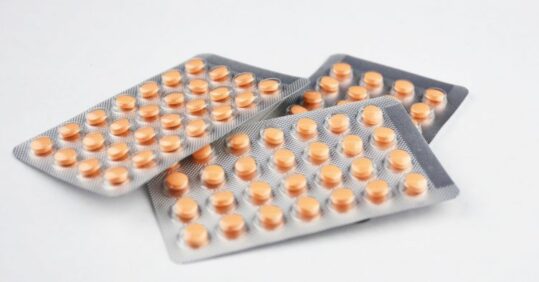Starting hormone replacement therapy (HRT) can feel like a new beginning—whether you’re treating menopause symptoms, gender dysphoria, or hormone imbalances. But for some, this medical journey comes with unexpected emotional turbulence. If you’ve been feeling unusually low, anxious, or mentally “off” after starting HRT, you’re not alone. The question many patients ask is: can HRT cause depression? In this article, we’ll explore how HRT affects mental health, why some people experience emotional side effects, and what you can do to feel better.
Understanding HRT and Its Common Uses
HRT, or hormone replacement therapy, is a treatment that introduces synthetic or bioidentical hormones into the body to replace declining hormone levels. It’s commonly used for:
-
Menopausal women experiencing hot flashes, mood swings, and sleep disturbances due to declining estrogen levels.
-
Transgender individuals undergoing gender-affirming treatments with estrogen or testosterone.
-
Men with low testosterone or women with hormone imbalances due to medical conditions.
While the benefits of HRT are well-documented—improved mood, energy, libido, and physical well-being—some patients report mental health dips after beginning treatment. This raises a crucial question: can HRT cause depression?
The Link Between Hormones and Mental Health
Hormones like estrogen, progesterone, and testosterone play a critical role in regulating mood, stress responses, and brain chemistry. Sudden changes—whether due to natural shifts or HRT—can have a ripple effect on mental well-being.
Here’s how each hormone may influence your emotional state:
-
Estrogen boosts serotonin, the “feel-good” neurotransmitter. Fluctuations in estrogen can trigger mood swings, anxiety, or depression.
-
Progesterone can have a calming effect but may also induce irritability or depressive symptoms in some people.
-
Testosterone helps with motivation and mood but excess levels may increase irritability or aggression.
So, can HRT cause depression? It’s possible—especially if hormone levels aren’t properly balanced or your body is highly sensitive to the changes.
Signs Your Mental Health May Be Declining After Starting HRT
It’s normal to feel emotionally unsettled in the first few weeks of starting HRT. Your body is adjusting, and that can temporarily affect your mood. However, ongoing mental health struggles may indicate something more serious.
Watch for these signs:
-
Persistent sadness or crying spells
-
Sudden mood swings or irritability
-
Trouble sleeping or oversleeping
-
Increased anxiety or panic attacks
-
Feelings of hopelessness or worthlessness
-
Lack of interest in things you once enjoyed
-
Difficulty concentrating
If you’re asking yourself, “can HRT cause depression?” because you’re experiencing these symptoms, it’s worth consulting your doctor to evaluate your treatment plan.
Why HRT Might Trigger Depression in Some Individuals
Not everyone will have the same experience on HRT. Several factors can influence how your mental health responds to hormone therapy:
1. Incorrect Hormone Dosage
Too much or too little of a hormone can lead to imbalances. An overly high dose of estrogen or testosterone, for example, can disrupt neurotransmitter activity, potentially leading to mood disturbances.
2. Pre-existing Mental Health Conditions
People with a history of anxiety, depression, or bipolar disorder may be more vulnerable to mental health changes after starting HRT.
3. Sudden Hormonal Shifts
Rapid changes in hormone levels can shock the system, especially when transitioning from very low to high levels quickly.
4. Individual Sensitivity
Some people are more hormonally sensitive than others. Even a standard dose of HRT may trigger adverse effects in those whose bodies react strongly to hormonal fluctuations.
Can HRT Cause Depression? What the Research Says
Clinical research offers mixed findings, but some studies suggest a correlation between HRT and mood changes, especially in certain populations:
-
A 2021 study in The Journal of Clinical Endocrinology reported that trans women may experience mood disturbances during the first 6 months of estrogen therapy, especially if other mental health support isn’t in place.
-
A 2018 study found that postmenopausal women on HRT had a slightly increased risk of depression during the first year, but risk declined over time.
-
In contrast, testosterone therapy in men with low T has been shown to reduce depressive symptoms—but only when dosage is carefully managed.
So while the answer to “can HRT cause depression?” isn’t a simple yes or no, it’s clear that the potential exists, particularly during the early stages or when therapy is poorly monitored.
How to Manage Mood Changes During HRT
If you’re experiencing depression or emotional side effects after starting HRT, don’t panic. There are actionable steps you can take:
1. Talk to Your Doctor
Never adjust your dosage on your own. Your healthcare provider can run hormone panels to see if levels are too high or low and adjust accordingly.
2. Monitor and Track Symptoms
Keep a mood journal. Noting when emotional symptoms occur in relation to your HRT dose can help identify patterns and inform your treatment plan.
3. Integrate Mental Health Support
Working with a therapist or psychiatrist alongside HRT can help you manage mood swings, especially if you have a history of depression.
4. Check for Underlying Causes
Sometimes, what feels like depression due to HRT may be related to other factors such as thyroid dysfunction, sleep disorders, or nutritional deficiencies.
Alternatives or Adjustments to Consider
If your mental health continues to suffer, it might be worth exploring alternatives or adjustments to your current HRT plan:
-
Switching to bioidentical hormones, which are structurally identical to natural human hormones and may be better tolerated.
-
Using transdermal patches or gels instead of oral medications for more stable hormone absorption.
-
Lowering the dose or changing the delivery method to minimize spikes and crashes in hormone levels.
Final Thoughts: Should You Be Worried?
If you’ve found yourself wondering, “can HRT cause depression?”, you’re already taking the first step by asking the right questions. Mental health changes are a possible side effect of HRT—but they’re usually manageable with proper guidance and support.
With careful monitoring, an individualized plan, and attention to mental wellness, HRT can still be a powerful tool to improve your quality of life. Don’t suffer in silence—speak up, seek support, and make adjustments until your body and mind are in sync.



